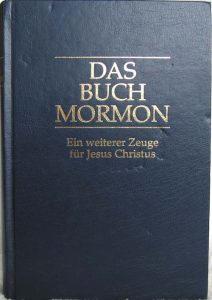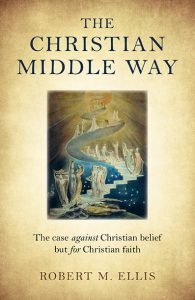The fact that I’m slightly wary of the prospect of ‘outing’ myself as an agnostic in this article shows that there is an issue here that I ought to address. I think most of those who know me reasonably well would imagine that I would prefer to be categorised as an atheist… but the confusion that I may create by suggesting that I’m agnostic rather than an atheist can hopefully be turned into a learning opportunity with regards to Middle Way philosophy.
TL;DR version One can be agnostic about more than the existence or non-existence of God, and one should not confuse agnosticism with wishy-washy indecisiveness, fence-sitting, uncertainty or appeasement of people who hold proudly to absolute beliefs that inevitably lead to psychological repression and sociological harm. There are everyday situations in which agnosticism is the more ethical position as it steers the agnostic away from metaphysical dilemmas and towards provisional beliefs that have the possibility of being integrated, reducing the amount of unhelpful repression required of the believer.
In a letter of 1958, the British philosopher Bertrand Russell wrote:
“I ought to call myself an agnostic; but, for all practical purposes, I am an atheist. I do not think the existence of the Christian God any more probable than the existence of the Gods of Olympus or Valhalla. To take another illustration: nobody can prove that there is not between the Earth and Mars a china teapot revolving in an elliptical orbit, but nobody thinks this sufficiently likely to be taken into account in practice. I think the Christian God just as unlikely.” [1]
 This teapot analogy was first mentioned in an unpublished article of 1952 titled Is There a God?, in which he wanted to make clear that the philosophic burden of proof lies upon a person making unfalsifiable claims, rather than shifting the burden of disproof to others. However, in the quote above Russell is using the teapot analogy to explain why he considers himself to effectively be an atheist rather than a theological agnostic, and this is the way that I have seen the teapot analogy called upon most often, for example by ‘new atheists’ such as Richard Dawkins.
This teapot analogy was first mentioned in an unpublished article of 1952 titled Is There a God?, in which he wanted to make clear that the philosophic burden of proof lies upon a person making unfalsifiable claims, rather than shifting the burden of disproof to others. However, in the quote above Russell is using the teapot analogy to explain why he considers himself to effectively be an atheist rather than a theological agnostic, and this is the way that I have seen the teapot analogy called upon most often, for example by ‘new atheists’ such as Richard Dawkins.
An instance of Dawkins’ use of the teapot analogy is worth quoting at length because I want to argue here that this kind of argument misses the point:
“A friend, an intelligent lapsed Jew who observes the Sabbath for reasons of cultural solidarity, describes himself as a Tooth Fairy Agnostic. He will not call himself an atheist because it is in principle impossible to prove a negative. But “agnostic” on its own might suggest that he thought God’s existence or non-existence equally likely. In fact, though strictly agnostic about God, he considers God’s existence no more probable than the Tooth Fairy’s. … Bertrand Russell used a hypothetical teapot in orbit about Mars for the same didactic purpose. You have to be agnostic about the teapot, but that doesn’t mean you treat the likelihood of its existence as being on all fours with its non-existence.” [2]
If I were to say that I was agnostic regarding the existence or non-existence of Russell’s teapot then I would be expressing a weak agnostic position. I would essentially be saying that I was suspending my belief in the existence or non-existence of the teapot as it was not currently possible for me to know one way or the other, to any degree: I would be awaiting suitably persuasive evidence from experience, that in principle could arrive later… but I might be in for a very long wait.
Claiming this kind of agnosticism is unnecessary because the beliefs involved can be held provisionally, and also incrementally (that is, to a degree of certainty). If pressed to express an opinion, I would say that I believed in the existence of Russell’s teapot, but to only a very small extent – or, alternatively, that I believed in the non-existence of Russell’s teapot to a very great extent. That’s the incremental side. The extent of my beliefs could be altered by new evidence to arrive through my experience: perhaps altered very greatly if my astronaut friend returned home from a trip to space, bearing Russell’s teapot as a souvenir of her journey… although even then I would suspect that she was playing a philosophical prank. That is the provisional side – the ability to modify the belief in response to new evidence.
Russell’s teapot exists and Russell’s teapot does not exist are not a pair of opposing absolute claims because the truth or falsity of these claims depends on evidence that we could, in principle, experience. That said, I can find the idea of the existence of Russell’s teapot meaningful, even if I believe it to be very unlikely – in the same way that I can find the fictional characters depicted in films and books to be meaningful, even though the chances of them existing may be very slim.
 However, to bring the discussion back to theology, if I were to say that I was agnostic regarding the existence or non-existence of God then I would be expressing a strong agnostic position about an absolute belief. As a finite and fallible human being my embodied limitations prevent me from accessing evidence about a perfect metaphysical being, so I cannot hold a weak agnostic position about this pair of opposed beliefs: if my astronaut friend returned from space claiming in all seriousness that she had ‘met God’ out there I could concede that she’d had a meaningful religious experience, but it wouldn’t constitute evidence of the existence of God.
However, to bring the discussion back to theology, if I were to say that I was agnostic regarding the existence or non-existence of God then I would be expressing a strong agnostic position about an absolute belief. As a finite and fallible human being my embodied limitations prevent me from accessing evidence about a perfect metaphysical being, so I cannot hold a weak agnostic position about this pair of opposed beliefs: if my astronaut friend returned from space claiming in all seriousness that she had ‘met God’ out there I could concede that she’d had a meaningful religious experience, but it wouldn’t constitute evidence of the existence of God.
The belief in the existence or non-existence of God is absolute because there is no scope for incrementality – it either is, or it isn’t, and my belief in it is not open to evidence that arrives through my experience as an embodied human being. Furthermore, there is no way that such a belief can be held provisionally – I could only flip between the two absolute poles. These opposing beliefs cannot be successfully integrated, so the only Middle Way route is to navigate a course of agnosticism between the two poles.
Going beyond theological agnosticism
The way that I’ve talked about the God/no-God situation so far is perhaps almost as trivial as the teapot/no-teapot situation. In my everyday life, I am not faced with a metaphysical dilemma between the existence or non-existence of a perfect God-like being, except in the occasional quiet moment of speculation. I certainly do not have to face Inquisitors who want to verify my adherence to their theological dogmas; I don’t even have to attend church on Sunday mornings out of social obligation. What I am faced with are very specific truth-claims and value-judgements made by adherents of various religions and denominations within those religions, and also by those who reject religion and favour other, more secular approaches.
Unlike the general musing on the God/no-God question, these more specific religious beliefs have specific ethical implications in my diet, my sex life, my profession, my health and treatment of my ill-health and so on. Must I take an agnostic position about these positive and negative beliefs, even if it seems like a proliferation of absurd teapot-like trivialities? The straightforward answer is yes. However, this usually seems to be unacceptable to people who have little understanding of the Middle Way: it seems absurd that I should be agnostic about the belief that, for example, I should not cook meat and dairy produce in the same meal.
As a non-Jewish person living in a non-Jewish culture, couldn’t I just say no, I don’t believe that meat and dairy must be kept separate because the laws of Kashrut in the Torah say they should? The determining factor is whether the belief in question is absolute: if the very formulation of the belief means that it cannot be held provisionally and that it cannot be incrementalised, then the middle way is to remain agnostic about it. In the kashrut case mentioned above, the Torah says that I must separate meat and dairy and that’s the end of it. I am either to believe it or not: I cannot believe it to some extent because the belief is based on an appeal to the absolute authority of the Torah.
 In short, if ever an issue reduces down to being ‘a self-evident belief’ (or, as is often said, a matter of ‘faith alone’) then it is something that the Middle Way requires us to be agnostic about. An obvious example is the claim that a book, such as the Book of Mormon, is the truth from God as revealed to Joseph Smith via the angel Moroni. As implausible as it seems to me, the truth of this claim (or its counterclaim) relies on belief alone, and as such, I should remain agnostic about it. Dogmatically stating that the Book of Mormon is not God’s revealed truth is as unhelpful as dogmatically stating that it is – and by ‘unhelpful’ I mean not conducive to integration. The Salvation Army’s eleven articles of faith that I affirmed as a teenager are a textbook example of a set of beliefs that are a matter of ‘faith alone’.
In short, if ever an issue reduces down to being ‘a self-evident belief’ (or, as is often said, a matter of ‘faith alone’) then it is something that the Middle Way requires us to be agnostic about. An obvious example is the claim that a book, such as the Book of Mormon, is the truth from God as revealed to Joseph Smith via the angel Moroni. As implausible as it seems to me, the truth of this claim (or its counterclaim) relies on belief alone, and as such, I should remain agnostic about it. Dogmatically stating that the Book of Mormon is not God’s revealed truth is as unhelpful as dogmatically stating that it is – and by ‘unhelpful’ I mean not conducive to integration. The Salvation Army’s eleven articles of faith that I affirmed as a teenager are a textbook example of a set of beliefs that are a matter of ‘faith alone’.
Pragmatically speaking, it is very easy for me to avoid getting involved in disputes about the validity of the metaphysical claims of the Church of Jesus Christ of Latter-Day Saints as I don’t live in Utah. Similarly, I’ve not been involved with the Salvation Army for 20 years, so my agnosticism about their articles of faith is somewhat of a moot point. It wouldn’t be so easy if, for example, I was a full-time physics teacher in a Catholic school in the UK. That’s a lot closer to my own lived experience (I trained in such a school for three months in 2004) – and I can imagine that if I worked in such an establishment now I’d be fighting hard to resist sceptical slippage – but that’s a topic for another time!
Does agnosticism annoy some noisy atheists?
So, to return to the Richard Dawkins kind of objection to agnosticism, the following quote [3] exemplifies what he finds unacceptable:
“Agnostic conciliation, which is the decent liberal bending over backward to concede as much as possible to anybody who shouts loud enough, reaches ludicrous lengths in the following common piece of sloppy thinking. It goes roughly like this: You can’t prove a negative (so far so good). Science has no way to disprove the existence of a supreme being (this is strictly true). Therefore, belief or disbelief in a supreme being is a matter of pure, individual inclination, and both are therefore equally deserving of respectful attention! When you say it like that, the fallacy is almost self-evident; we hardly need spell out the reductio ad absurdum. As my colleague, the physical chemist Peter Atkins, puts it, we must be equally agnostic about the theory that there is a teapot in orbit around the planet Pluto. We can’t disprove it. But that doesn’t mean the theory that there is a teapot is on level terms with the theory that there isn’t.” [3]
Dawkins’ objection is to a kind of relativism that bestows equal value on belief in God and disbelief in God. I hope I’ve been clear enough in what I’ve written above that the agnosticism that is part of the Middle Way is not of this ilk. One cannot integrate belief in the existence of God and belief in the non-existence of God due to their opposed absolute statuses, and thus it is not an area that is worth shouting ourselves hoarse about.
Richard Dawkins and other new atheists, such as Sam Harris, are very vocal about the harm that they consider to result from religious belief, but they may have slightly missed the point that the harm (or lack of integration) comes from the absolute beliefs that are considered part of most traditional religions, and not from the religions in general. In short: religion is not the problem, absolute beliefs are the problem. Other, non-religious, ideologies often make the same error of remaining beholden to absolute beliefs – which may have the advantage of allowing groups to survive due to the sociological ‘binding’ effect of absolute beliefs – but a dogmatic Marxist is going to have the same problem integrating their beliefs as a dogmatic Roman Catholic.
Concluding remarks
In the current climate of highly-polarised opinions in broadcast and social media, it would be beneficial if we could be clear about the most helpful applications of agnosticism, and why it is not a position that needs to trouble us with regards to provisional beliefs such as belief in the non-existence of Russell’s teapot. It would also help if we could focus on the problem (absolute beliefs) and not so much on the contexts with which those absolute beliefs are most often associated – in this way we could avoid unhelpful dismissal and dehumanisation of people that we would do better to engage with. The final thing is that there is a way to positively benefit from remaining agnostic on absolute beliefs (such as metaphysical beliefs), and as it is far from easy there are small but growing organisations like the Middle Way Society who want to promote the kind of practices that aid rather than inhibit integration.
Afterword
I would like to add a few remarks here about how I came to write the above article. The first thing is that I was looking again at the idea of agnosticism and the Middle Way in preparation for a discussion group meeting about the fifth of the Introductory series of videos. Although I’d come across the idea of agnosticism before in Middle Way Philosophy, I don’t think I’d understood the bigger picture. Returning to it has certainly helped.
The second thing is that I was motivated to clarify my thoughts and feelings about it by the idea that if I “came out” as a theological agnostic to my friends then most of them would probably be surprised that I hadn’t chosen to claim the position of ‘atheist’, or even ‘atheist agnostic’, rather than simply ‘agnostic’. For those who don’t know me so well, I’m a physics teacher by profession and a theoretical physicist by training; I haven’t been a practicing Christian for over 20 years now, I rarely talk about God or other supernatural entities, I don’t express opinions that would make others think that my ethical outlook is motivated by a belief in a perfect creator God, and so on. For those who are reading this in the USA: very roughly speaking, the default position in the UK is that of atheism, with maybe a nod to the Christian cultural heritage of this country… some recent surveys suggest that more than 50% of the population consider themselves to be ‘of no religion’. This is more than a discussion about definition of terms and epistemology (how do we know what we know) – I believe that it matters that I would categorise myself as a strong agnostic, not because I want to ‘leave the door open’ for supernatural theologies, but because it leads to the broader and more helpful Middle Way stance on absolute beliefs generally.
The third thing is that when I started to type up my thoughts, I didn’t have a very good grasp of exactly what it was that I was trying to argue for (or against!). I went down the rabbit-hole of reading comments on YouTube videos about agnosticism, but not so far that I couldn’t get out easily before getting trapped in the toxic sludge. This really helped to clarify what I was up against, as were some clips from an episode of South Park in which Kenny and his siblings are sent to live with militant agnostic foster parents.
The usual difficulty arises when attempting to write on a topic like this: make it too short and you’ll be misunderstood, but trying to make yourself understood leads to more words than most are willing to read in the era of tweets and terse Facebook comments typed hurridly whilst doing something else. That said, thanks for reading this to the very end!
References
- Bertrand Russell (1958) Letter to Mr Major. In Dear Bertrand Russell: A Selection of his Correspondence with the General Public, 1950 – 1968 (London: Allen & Unwin, 1969).
- Richard Dawkins, ‘A Challenge To Atheists: Come Out of the Closet,’ Free Inquiry, Summer 2002.
- Richard Dawkins, ‘Snake Oil and Holy Water’ FORBES ASAP, October 4, 1999
Further reading
Picture credits






